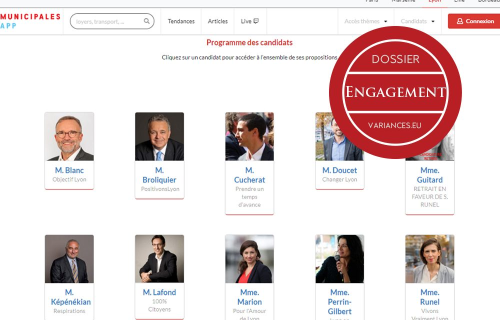
Liste des articles


Vue 221 fois
25 septembre 2019
Shareholder engagement with the companies to improve corporate value
The present article is based on our experience as an active manager on the Japanese equity market. We manage a Japan Engagement strategy, where we actively engage with the invested companies to enhance the corporate value creation.
Can the dialogue with shareholders have an impact on the decisions of the corporate executives? Can the voice from small shareholders reach the management of large cap companies? Does it work in a Japanese context, with Japanese companies that have been very hesitant to communicate with investors?
The answers to these questions are definitely positive. However, you have to be committed to engagement and it depends on how you play the game to achieve the outcomes.
- Even good management can sometimes make suboptimal decisions, maybe just because things are going well. There is always something to improve or amend!
- Better communication and disclosure on corporate values could contribute to diminish an unfair discount by the market.
As a long-term investor, we place emphasis on “sustainability” when we evaluate a company. Technology and innovation changes have a rapid and deep impact on our lives, as well as on the market and on the companies’ business environment. We therefore assess whether the company’s business model can remain competitive in five years’ time. We believe that there are two types of sustainability: business sustainability and ESG sustainability. Those two aspects are closely related to each other, as the companies that do not deliver high value on non-financial issues could face serious business risks in the long term. Those risks could be triggered by changes in regulation, in consumer demands, in social issues or climate change, as well as reputational effects.
This is why we engage with the companies in two dimensions: financial and ESG aspects. Financial aspects mainly cover the capital allocation and business strategy designed to improve companies’ capital efficiency and operational productivity. ESG aspects, on the other hand, cover communication to the market, practices in material sustainability issues and ESG integration into the company’s medium to long-term business plan.
On the other hand, we were concerned about their governance structure and some of their management strategies. Our engagement in the early period focused on better governance and the introduction of ROIC[1] within the management’s KPI[2]. The management was very receptive to our proposals, and announced several measures over time. For example, the company has increased board independence and diversity and introduced ROIC management. Nevertheless, the company struggled to integrate this new KPI into individual business segments to deliver better profitability and operational efficiency. Therefore, we participated in their internal management seminar to give managers a better idea of what each of them was expected to deliver under ROIC management. We also advised the company on several issues to improve ROIC management, such as delegation of responsibility and authority between the headquarter and each business segment, as well as the management decision process. During the last two years, it is worth noting that the level of disclosure has improved significantly, as a result of their increased awareness of the importance of market communication. We have been satisfied with the outcomes and the proactive attitudes of the management towards the suggested improvements on the issues we raised. Our dialogue with the company continues, we are confident that it is working in the right direction and expect to see more initiatives from the company, which will ultimately be reflected into the stock price.
What was the trigger for this notable change on their disclosure and their approach to sustainability? One of the drivers has been our sharing specific concerns with the management. Discussions on non-financial issues often tend to take place in too general terms and to lack concrete focus. Our message to the management has been very straight and clear:
- What are the potential risks in their business arenas?
- Where do they lag behind their global peers?
- How do these issues relate to the corporate value creation?
We met with the management on a regular basis to share our views, discuss with them and monitor their progress. We observed a wide range of improvements in the company’s disclosure and governance as outcomes of our engagement. The company received several awards on Investor Relations disclosure as a result of better market communication. Their recent integrated report illustrates the medium-term action plans to ensure the company’s sustainable growth and keep their competitive advantage. The market now has better visibility on the company’s growth and the progress of its medium-term business plan. From a governance perspective, the company announced a revised remuneration structure and the appointment of a new independent director, who has the desired skillset in light of the future direction of the company. We expect to see more transparent board structure in due course. We also encourage the company to formulate more detailed strategies so that its business model may progress going forward to capture new business opportunities. We are very confident to be able to support the company even further to enhance its value through a close dialogue.
These examples hopefully provide better color to what engagement means in equity investing, and how we support companies in improving their value. They show that we engage with companies whose capabilities we are confident of. We do not aim to change the companies nor the management; we seek to enhance the value of the company through its existing structure. In this sense, we align our interests with those of the management, which makes us different from activists.
We believe that the appropriate actions companies take should translate into their share price over time, and those trends should motivate other companies to improve their own practice. This will ultimately result in raising the standards in the Japanese equity market overall.
Overseas investors have seen Japan as a country with no change, no growth nor action. However, the corporate governance reform, implemented by the Japanese government to improve transparency and competitiveness of Japanese corporates, has driven societal changes, and some impacts have materialized in the last few years. Is there any other country where the private and public sectors are working so closely to improve the corporate governance practices?
We intend to apply our approach to deliver as much value as we can, and we aim to get ahead of the trend and become the best engagement player in the market. Moreover, we really hope to make the Japanese market more visible and more competitive in global markets.
[1] Return On Invested Capital
[2] Key Performance Indicators
Disclaimer:
All opinions expressed by Author here are solely Author's opinions and do not reflect the opinions of Amundi Japan. This article is provided for information purposes only and does not constitute a recommendation, a solicitation, an offer, an advice or an invitation to purchase or sell any fund, individual stocks described herein and should in no case be interpreted as such. We accept no liability whatsoever, whether direct or indirect, that may arise from the use of information contained in this article.
Can the dialogue with shareholders have an impact on the decisions of the corporate executives? Can the voice from small shareholders reach the management of large cap companies? Does it work in a Japanese context, with Japanese companies that have been very hesitant to communicate with investors?
The answers to these questions are definitely positive. However, you have to be committed to engagement and it depends on how you play the game to achieve the outcomes.
Our approach – allocate the capital with capable business management
Looking back to the market environment we have been through for the last several years, it would have been almost impossible for anyone to predict how the market would perform in the short term. Despite this, we are very confident that our rigorous bottom-up research would have led us to correctly identify the capability of companies’ management. Our investment philosophy is to entrust our clients’ assets with companies’ management which we believe have a strong ability to generate capital growth in the long term. This is not obvious when you observe stock prices in the short term, as share prices are often driven by market sentiment or other macro factors over that horizon. However, over the long term, stock prices should reflect the magnitude of the value delivered by the management. In order to identify it, we rigorously conduct bottom-up research to assess the uniqueness and the competitive advantages of the company’s business model and determine whether it is able to deliver sustainable return over our target investment period. This leads us to build an investment universe composed of a group of high quality companies with high return on capital, solid business model and strategy and sound financial conditions with reasonably low debt. Our investment portfolio is rather concentrated, with approximately 30 companies, and as a result, we know what we are investing in.Why do we engage?
Why do we even bother engaging with the capable management of companies, if the business they run is a high quality one? The answers are quite simple:- Even good management can sometimes make suboptimal decisions, maybe just because things are going well. There is always something to improve or amend!
- Better communication and disclosure on corporate values could contribute to diminish an unfair discount by the market.
As a long-term investor, we place emphasis on “sustainability” when we evaluate a company. Technology and innovation changes have a rapid and deep impact on our lives, as well as on the market and on the companies’ business environment. We therefore assess whether the company’s business model can remain competitive in five years’ time. We believe that there are two types of sustainability: business sustainability and ESG sustainability. Those two aspects are closely related to each other, as the companies that do not deliver high value on non-financial issues could face serious business risks in the long term. Those risks could be triggered by changes in regulation, in consumer demands, in social issues or climate change, as well as reputational effects.
This is why we engage with the companies in two dimensions: financial and ESG aspects. Financial aspects mainly cover the capital allocation and business strategy designed to improve companies’ capital efficiency and operational productivity. ESG aspects, on the other hand, cover communication to the market, practices in material sustainability issues and ESG integration into the company’s medium to long-term business plan.
Engagement case studies
We conduct approximately 50 engagement meetings per year covering a wide range of topics. Here are a few case studies of our engagement meetings, which we hope illustrate how engagement can help companies deliver sustainable growth.Case 1: Transport Company A
We initiated an investment in this company about two years ago, and actively engaged with the management since the beginning of the investment. We very positively evaluated the company’s business model, which successfully transformed from a traditional transport business to a high value-added total solution business.On the other hand, we were concerned about their governance structure and some of their management strategies. Our engagement in the early period focused on better governance and the introduction of ROIC[1] within the management’s KPI[2]. The management was very receptive to our proposals, and announced several measures over time. For example, the company has increased board independence and diversity and introduced ROIC management. Nevertheless, the company struggled to integrate this new KPI into individual business segments to deliver better profitability and operational efficiency. Therefore, we participated in their internal management seminar to give managers a better idea of what each of them was expected to deliver under ROIC management. We also advised the company on several issues to improve ROIC management, such as delegation of responsibility and authority between the headquarter and each business segment, as well as the management decision process. During the last two years, it is worth noting that the level of disclosure has improved significantly, as a result of their increased awareness of the importance of market communication. We have been satisfied with the outcomes and the proactive attitudes of the management towards the suggested improvements on the issues we raised. Our dialogue with the company continues, we are confident that it is working in the right direction and expect to see more initiatives from the company, which will ultimately be reflected into the stock price.
Case 2: Pharmaceutical Company B
We have actively engaged with the company to improve the management structure and the market communication over the last two years. We like the management approach focusing on the business areas with strong competitiveness. We initiated the engagement with them by questioning their awareness of ESG issues. We have observed a notable improvement in their non-financial disclosure and commitment to sustainability in the last two years.What was the trigger for this notable change on their disclosure and their approach to sustainability? One of the drivers has been our sharing specific concerns with the management. Discussions on non-financial issues often tend to take place in too general terms and to lack concrete focus. Our message to the management has been very straight and clear:
- What are the potential risks in their business arenas?
- Where do they lag behind their global peers?
- How do these issues relate to the corporate value creation?
We met with the management on a regular basis to share our views, discuss with them and monitor their progress. We observed a wide range of improvements in the company’s disclosure and governance as outcomes of our engagement. The company received several awards on Investor Relations disclosure as a result of better market communication. Their recent integrated report illustrates the medium-term action plans to ensure the company’s sustainable growth and keep their competitive advantage. The market now has better visibility on the company’s growth and the progress of its medium-term business plan. From a governance perspective, the company announced a revised remuneration structure and the appointment of a new independent director, who has the desired skillset in light of the future direction of the company. We expect to see more transparent board structure in due course. We also encourage the company to formulate more detailed strategies so that its business model may progress going forward to capture new business opportunities. We are very confident to be able to support the company even further to enhance its value through a close dialogue.
These examples hopefully provide better color to what engagement means in equity investing, and how we support companies in improving their value. They show that we engage with companies whose capabilities we are confident of. We do not aim to change the companies nor the management; we seek to enhance the value of the company through its existing structure. In this sense, we align our interests with those of the management, which makes us different from activists.
Fostering the dialogue between companies
Our engagement is not limited to the above-described dialogue between shareholders and companies. We also hosted a CEO roundtable where we invited the CEOs of 10 of our invested companies and facilitated a three-level dialogue (shareholder – company – company) in one place. The objective of the roundtable was to share the best practices (and the failed practices) on management strategies, ESG and other important topics. The feedback from participants was very positive, as CEOs do not normally have the opportunity to discuss with other CEOs (especially CEOs in other industries) about their business strategies and ESG practices. This is another great example of how we aim to deliver the outcomes through engagement and what alignment of interest means in our engagement activity.***
Following strong inflows into passive investments in the last several years, passive investors have become large shareholders in the market. In this context, we believe, as an active manager, that engagement is one of the areas where we can add value in the market. As we have shown in this paper, engagement, aiming to deliver long-term corporate growth, requires a huge amount of work as well as deep understanding of the company’s business model. Passive investors cannot achieve this due to their limited resources and the characteristics of their investment approach.We believe that the appropriate actions companies take should translate into their share price over time, and those trends should motivate other companies to improve their own practice. This will ultimately result in raising the standards in the Japanese equity market overall.
Overseas investors have seen Japan as a country with no change, no growth nor action. However, the corporate governance reform, implemented by the Japanese government to improve transparency and competitiveness of Japanese corporates, has driven societal changes, and some impacts have materialized in the last few years. Is there any other country where the private and public sectors are working so closely to improve the corporate governance practices?
We intend to apply our approach to deliver as much value as we can, and we aim to get ahead of the trend and become the best engagement player in the market. Moreover, we really hope to make the Japanese market more visible and more competitive in global markets.
[1] Return On Invested Capital
[2] Key Performance Indicators
Disclaimer:
All opinions expressed by Author here are solely Author's opinions and do not reflect the opinions of Amundi Japan. This article is provided for information purposes only and does not constitute a recommendation, a solicitation, an offer, an advice or an invitation to purchase or sell any fund, individual stocks described herein and should in no case be interpreted as such. We accept no liability whatsoever, whether direct or indirect, that may arise from the use of information contained in this article.

















Aucun commentaire
Vous devez être connecté pour laisser un commentaire. Connectez-vous.